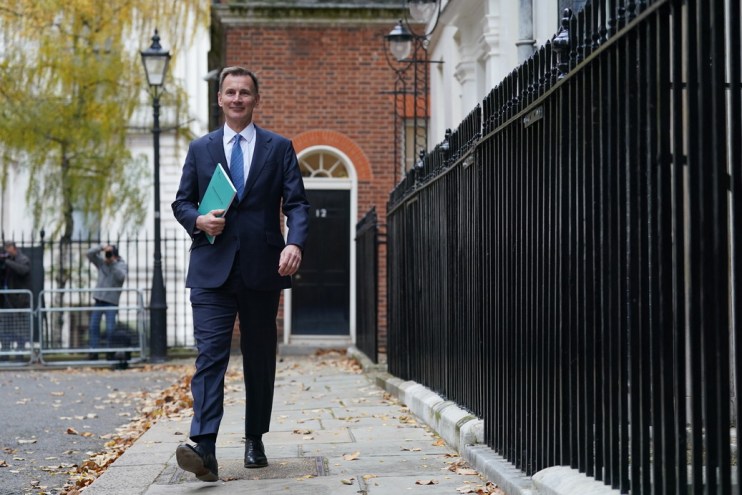Autumn Statement: What do Tory MPs make of Hunt’s ‘crowd-pleaser’ budget?

Most political parties like to describe themselves as broad churches. After all, no one wants to seem narrow minded, or dogmatic – or realistically, to turn away anyone willing to worship in their particular pews.
But currently, the Conservative Party, with its 350 MPs, has the strongest claim to being the widest, most welcoming, and inclusive parish of all. With that proud territory, of course, comes the rub, of being the party most often likely to see its left arm fall out with its right.
That makes it all the more of an achievement that Hunt and Sunak have managed to inch their way along such a precariously balanced tightrope, juggling competing pressures and – hold your breath – stick the landing.
Their Autumn Statement delivered, without being flashy, enough content to satisfy most quarters. A “crowd pleaser” which “revs the engine”, John Penrose told me.
While some senior right-wingers argued for the Chancellor to go further and faster towards lifting the tax burden, they at least weren’t demanding a total U-turn.
Greenies were chuffed with the recognition of the “economic opportunity of net zero”, the Conservative Environment Network’s Sam Hall observed.
And One Nationers, like Stephen Hammond, deemed it palatable, citing “compassionate” policies alongside “fiscal conservatism” and a focus on that magical buzzword, growth.
One sticking point, I’m told, may prove to be the mention of planning reform. The latent battle between the so-called NIMBYs and the YIMBY army rages on. Notoriously anti-development members will want to know exactly when, where and how far from their constituency associations that £32m to bust the planning backlog will be spent.
But for a party that just days ago appeared to be ripping itself limb from limb over the Rwanda deportation scheme following the Supreme Court’s momentous slapdown, it was – for now at least – a remarkable show of unity.
Party management, of course, is only one small part of the battle amid a much larger war.
Rishi Sunak – a meritocrat at heart – may still believe he can win the election; that hard work, in the physics of the political universe, can only translate into success. But, as BrightBlue’s Ryan Shorthouse said, many colleagues, and well, some voters, are loath to agree.
They may have won over the House, turned political water into wine (and cut taxes on it) but retaining the electorate’s faith may yet take a miracle.
